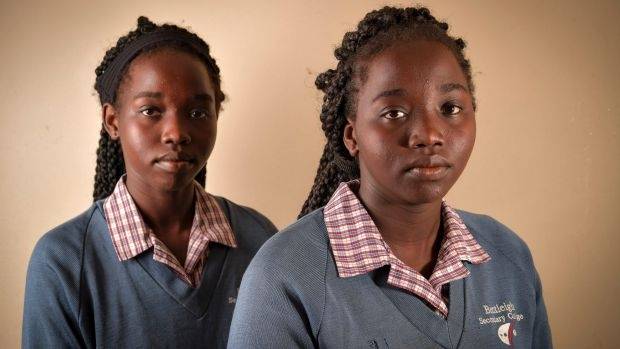
Australian-Ghanaian Sisters ‘Unenrolled’ from School for Braiding Hair
The mother of two Black sisters, who were “unenrolled” from their school due to braided hair has filed a complaint.
The mother of two Black sisters, who were “unenrolled” from their school following a dispute over their African hair, has filed a complaint with Australia’s Human Rights Commission alleging that her daughters’ enrollments were revoked because of their race.
According to ABC News, Amayah and Safhira Rowe were absent from school for a week in July because their principal told them that they could not attend Highview College with their hair untied. The sisters, whose father is Ghanaian, have braided hair. They said tying their hair at the back is painful.
And though the sisters did not face any issues after they later went back to school with “some-up, some-down” hairstyles, things took a nosedive on September 13. And that came in the wake of their story being extensively reported by the media.
Rebecca Rowe, who is the mother of the girls, said the school’s principal sent her a letter notifying her about her daughters’ “unenrollment” from Highview. She said she received the letter after Amayah had a conversation about the issue with the principal and staff. The discussion, which lasted over an hour and took place in the school office, was done without the presence of the girl’s mother or another adult. The school had also banned Rowe from entering its premises because of the uniform policy dispute.
In the letter, the school claimed that Amayah had aggressive behavior and continued to wear jewelry that wasn’t allowed by the school. The letter also claimed that Safhira had absented herself from class.
Responding to their “unenrollment” in a statement, Principal Melinda Scash said, “their behavior on Tuesday afternoon was unacceptable. They were unenrolled from Highview that afternoon”.
But Rowe, in her complaint to the Australian Human Rights Commission, alleged that her daughters weren’t treated fairly and they were “unenrolled” because of the color of their skin, ABC News reported. The school and the family will meet the commission for mediation in October.
Scash also told the news outlet that the girls were “unenrolled” from the school because they had received news that the two had gained admission into another school. But Rowe said that wasn’t the case, and their “unenrollment” was more like a dismissal.
And though Safhira gained admission into another school, Rowe said Amayah hadn’t. She explained that Amayah being enrolled at a different school was dependent on her passing Highview’s end-of-year exams. Amayah is also in her VCE [high school completion certificate] year.
“We will have to try to get her in anywhere that will take her and hope for the best. That will reflect poorly on her results I imagine,” Rowe said.
Amaya also disputed Scash’s claims that she was aggressive. “I don’t appreciate her repeatedly calling me aggressive which is a well-perpetuated black female stereotype which has been put on all women of color,” she said.
“I don’t appreciate her … disregard for my personal or mental wellbeing, or my education. She is an educator.” The girl’s mother said she believes her daughters were singled out by the school because of their decision to publicly talk about the uniform policy disagreement, ABC News reported.“They have never had complaints about anything behavior-wise, have high academic goals, and have always been reported as a pleasure to have in classrooms,” Rowe said.
“They are great kids. If I was running a school, these are the kids I would want there, not to get rid of them. “They want to be there and continue their education.”

